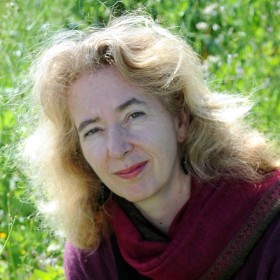
Research interests
Dr Lydia Smith joined NIAB in 1997 and initially managed the expansion of research across NIAB groups. She established and ran the Novel and Non Food Crops area, which remains an important part of NIAB’s work. With a BSc. in Botany from the University of Sheffield, an MSc, from Reading University and a PhD from the University of East London. She spent postdoctoral periods at UEA and Luton University, with periods lecturing in soil/environmental science at the University of Luton and in reclamation science on M.Sc. courses at the University of East London.
A plant ecologist by training, especially soil-plant microbial interactions and reclamation of land to agricultural use, Dr Smith has extensive experience in the application of ecological principles to the farming environment. Her experience naturally spans academic and commercial research in the agricultural crop-sector, Lydia has a particular interest in diversification of farm species and has sought to foster interactions between academics and business, especially in the East of England. Soil quality structure and function is a major part of activity within current non-food crop research.
Collaborative work at NIAB across many projects led to initiation of NIAB Innovation Farm by Lydia. Farmers and stakeholders needed a source of information relating to advances in genetics botany and agronomy of new crop species. The many innovative research programmes in mainstream agricultural food production often lack an easy pipeline for information exchange and efficient discussion with potential users and customers. In answer to this need. NIAB Innovation Farm provides a forum for research and innovation providers to interact directly with; large and small or recent start-up businesses.
In 2015, this led to the initiation of a second facility north of Cambridge, the Eastern Agritech Innovation Hub, where industry can work closely with NIAB on pilot projects and new product development, especially the utilisation or re-valorisation of waste products and co-products. Set up with support from the local LEP, it is now supporting SMEs in the early stage of their development.
Research projects
Restoring soil quality through re-integration of leys and sheep into arable rotations: This BBSRC/SARIC multidisciplinary project is designed to provide the first comprehensive assessment of the effects of reintroducing leys and sheep into arable land that has been intensively conventionally cultivated for decades and has suffered significant declines in soil quality. Led by Sheffield University
Bioboost: This EU Interreg2Seas project aims to stimulate a biobased development in horticulture in Europe. In Bioboost triple helix partners from the Netherlands, Belgium and the UK are working together to develop valorisation opportunities for fresh produce and co-products.
Hy4Dense: This EU Interreg2Seas will investigate alternative cultivation systems for ‘Densely Sown Crops’ We are aiming for sustainable, resource-efficient production through technological improvement using innovative production improvements by introduction of novel hydroponic cultivation systems.
Soil Cadre: This AHDB and Agricultural Charities funded project; (Soil and Cover crop Associations Developing Rhizo-biological Efficiency) is looking at the development of colonisation of cover crops by mycorrhizal fungi, seeking to identify biodiversity and quantify symbiotic benefit.
TIGR2ESS: This GCRF funded collaborative project led by Cambridge University is investigating ways to strengthen food security in India; developing alliances across a wide-ranging network.
MillNET_i: This GCRF funded collaborative project led by Cambridge University is looking at ways to improve nutritional benefit from Millet with a special focus on bioavailability and soil quality.
Cover Crop-AD: interactions Innovative Farmers field lab supported by AHDB and Soil Association. Looking at the use of selected cover crops to enable sustainable use of AD digestate in eastern England
